Who is here? 1 guest(s)
|
Stratiomyid larva
|
|
| Carnifex |
Posted on 10-06-2021 22:05
|
|
Member Location: Posts: 1833 Joined: 23.06.15 |
Found in a glass jar with garden soil, 6mm long. Vienna in June   
Cheers, Lorin Font Color All requests are from the urban area of Vienna, if not otherwise stated. My Diptera observations (and other living forms) can be found here, and corrections or comments over there would also be appreciated. |
|
|
|
| atylotus |
Posted on 18-06-2021 11:52
|
|
Member Location: Posts: 1112 Joined: 29.05.09 |
Pachygaster sp. and most likely P. atra. for the ventral hairs appears to be swollen at the end. |
|
|
|
| Carnifex |
Posted on 20-06-2021 00:09
|
|
Member Location: Posts: 1833 Joined: 23.06.15 |
In my garden, so far I could document 2 different Pachygaster species (P. leachii the other one), but P. atra is the most common stratiomyid here. Are these larvae good to separate based on the hairs?
Cheers, Lorin Font Color All requests are from the urban area of Vienna, if not otherwise stated. My Diptera observations (and other living forms) can be found here, and corrections or comments over there would also be appreciated. |
|
|
|
| atylotus |
Posted on 21-06-2021 12:38
|
|
Member Location: Posts: 1112 Joined: 29.05.09 |
Dear Lorin yes, the distinction can be made by using the ventral setae. In P. atra these setae are distally thickened and in P. leachii they are not. In some older papers (e.g. Rozkosny 1973) it is, in my opinion, wrongly written as dorsal setae. Edited by atylotus on 21-06-2021 12:39 |
|
|
|
| Jump to Forum: |


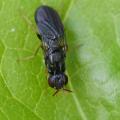



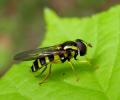
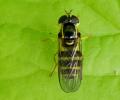

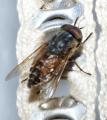
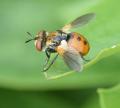


 but don't see the image in the post.
but don't see the image in the post.
